Miraculously Cured From Type 1 Diabetes
Enjoyed this post? Check out my post on ‘MORE Spontaneous Remissions From Type 1 Diabetes!’ too. But please also check out the update on Daniel Darkes here.
Who Is Daniel Darkes?
Daniel Darkes is the first man (in the Western World, at least) to be cured of Type 1 Diabetes. He has become the talk of the town in diabetes communities as people try to understand how this incurable, lifelong condition is no longer incurable or lifelong!
Daniel Darkes was diagnosed with Type 1 Diabetes in 2010, aged 23. He has left the British Army Grenadier Guard just four weeks before his diagnosis. He has stated that he was discharged from the army on medical grounds but it is not clear what medical issue this was.
Before Daniel’s body started to heal, he was originally taking 5-6 units of Novorapid for meals and 8 units of Lantus at night-time for a period of 7 years.
Daniel Stops Taking Insulin
In November 2016, Daniel started having episodes of recurrent hypoglycaemia at night. Before this point, night-time hypo’s had been extremely rare for him. Under the medical guidance of Northampton General Hospital, Daniel gradually reduced his insulin doses to try to prevent further hypoglycaemic episodes. However, no matter how little he gave, he continued to hypo. Eventually, it got to the point that Daniel’s consultant made the decision to stop insulin altogether.
The Impossible Becomes Possible
When I think about Miracle Dan (as Daniel Darkes has been named by his friends), I am reminded of the story of the four-minute mile. On May 6th 1954, Roger Bannister was the first man to run a mile in under four minutes. Athletes had tried since 1886 to break this barrier and none had succeeded. It was therefore assumed that this was a feat beyond human capability, something that the human body just could not do. However, once Bannister broke this barrier, many others followed. The impossible had become possible. Once they saw it could be done, many others did it too.
For me, Daniel Darkes is the Roger Bannister of Type 1 Diabetes. He has broken the barrier and shown that this ‘incurable’ condition is curable. We now know the impossible is possible.

Reactions To Daniel Darkes' Cure
The medical and diabetic communities have not been wholly receptive to the news of Daniel Darkes’ cure. For example, Live Science wrote a piece highlighting what they believed to be inconsistencies in Daniel Darkes’ story. Firstly, they questioned the validity of his original Type 1 Diabetes diagnosis. They also used Daniel Darkes’ refusal to provide his medical records (actually, it was his NHS trust that refused due to patient confidently laws in the UK), plus the absence of a published medical case study, to infer that this may be some kind of hoax.
As I ponder this reaction, I am reminded of quote by Arthur Schopenhaueur:
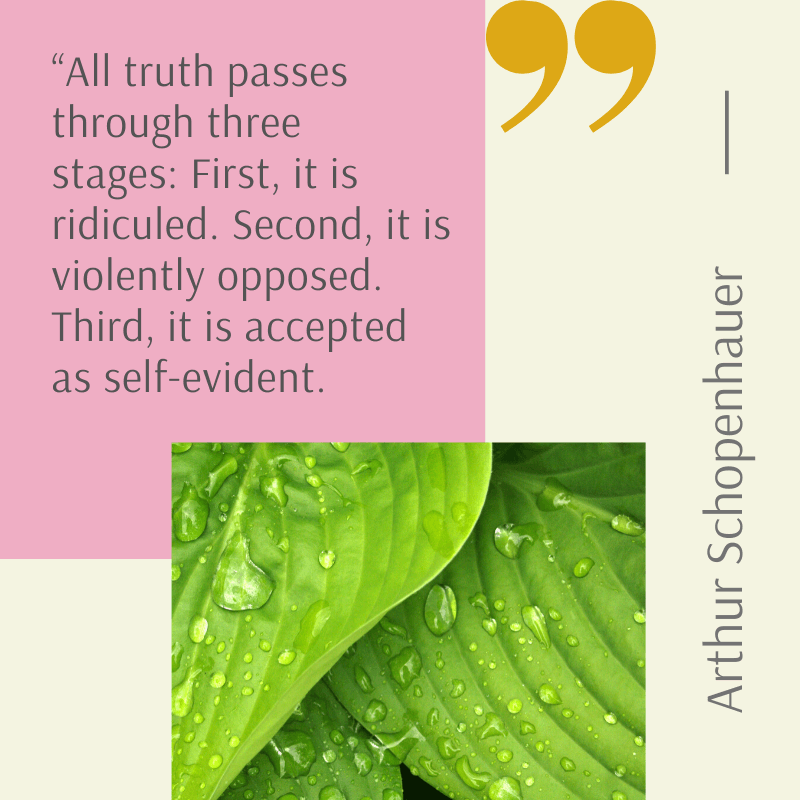
It appears to me that, unfortunately, Daniel Darkes’ healing is encountering the first two stages of truth – ridicule and violent opposition. Change in the medical world takes time.
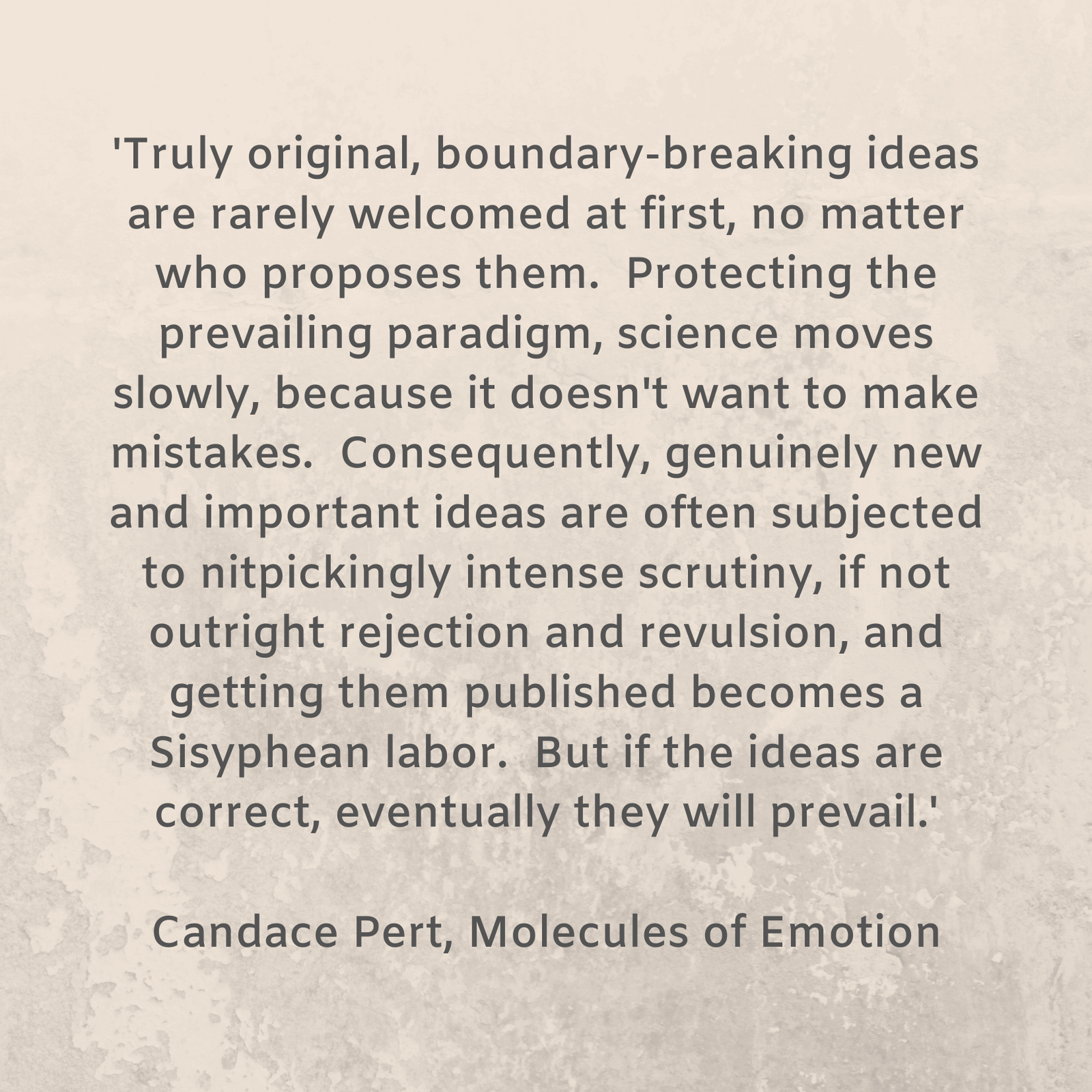
Daniel Darkes has stumbled across the way to heal Type 1 Diabetes. So, whilst the medical community is adjusting its lens to the new reality, I’d like to get on with actually learning as much as I can about how he achieved it!
What Do We Know About Daniel Darkes' Miracle Cure?
Daniel's Diet
Daniel appears to have a very healthy diet. He runs a lot (see below) and therefore takes care of his nutrition for this. When not running, his diet tends to consist of a lot of fish, chicken and vegetables, basically pretty low-carb. He might eat fruits, nuts and crackers for lunch. He doesn’t eat sweet stuff, chocolate or have sugar in his tea. But, before I panic about such a restrictive diet, he does admit to also having the occasional beer or sweet treat or takeaway at weekends!!
On days when Daniel is running a long run, he will increase his carbohydrate intake by adding in a serving of rice, pasta or sweet potato for dinner and/or porridge for lunch. He will also have gels or sweets on the runs to top up his blood sugars, if needed.
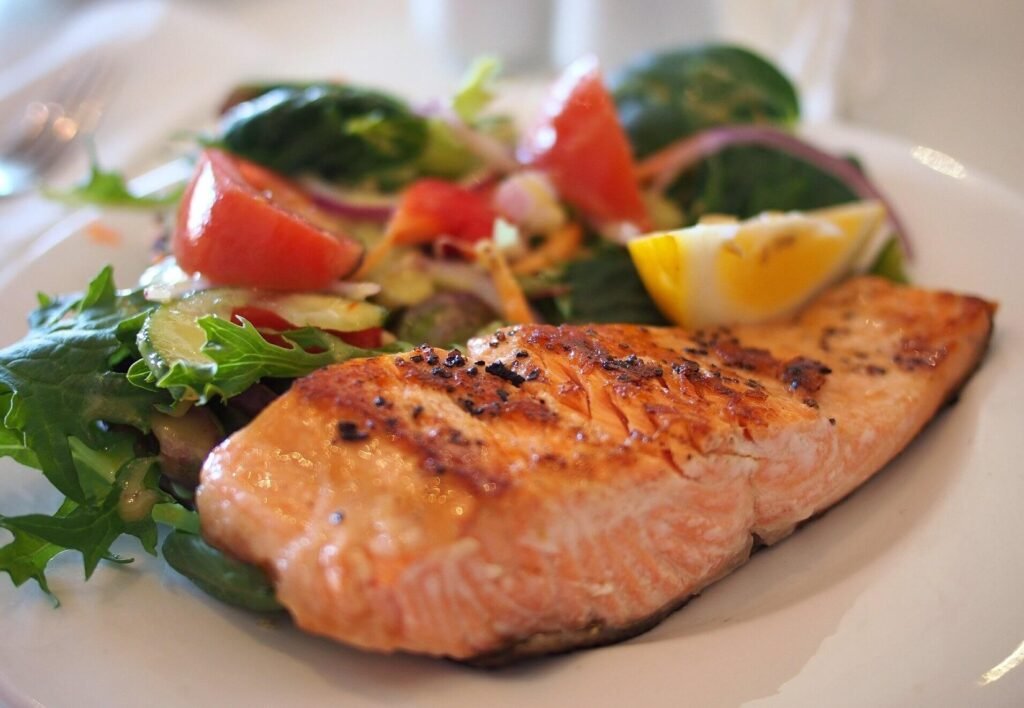
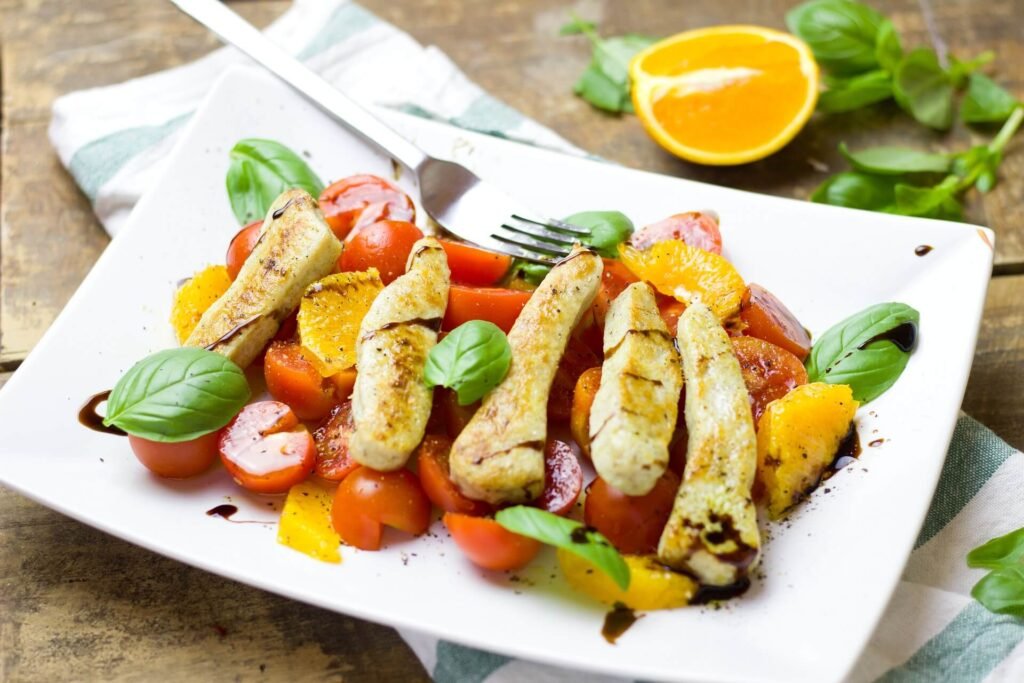

Foodstuffs Found In Daniel Darkes’ Diet
Daniel's Vitamins and Supplements
Daniel has said that he takes the following vitamins and supplements on a daily basis:
- 16mg of Zinc, in tablet form
- 10 ug of Vitamin B12
- 25 ug Vitamin D Ultra
- 200 mg of Vitamin C
- 1000 mg Omega 3s, in tablet form
Daniel's Exercise Routine
Daniel is a long-distance runner. He regularly runs marathons and ultra-marathons. He is dedicated to his fitness. He tends to run 15-30 miles a couple of times a week and then does a longer run at the weekend.
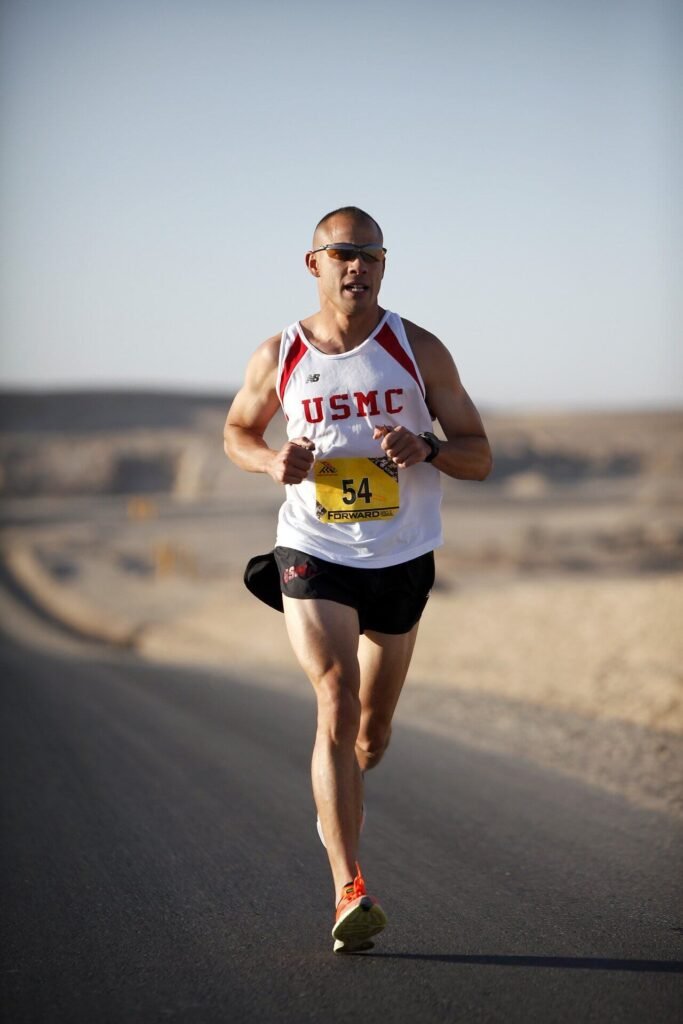
Enjoyed this post? Check out my post on ‘MORE Spontaneous Remissions From Type 1 Diabetes!’ too.
What The Experts Think
Daniel Darkes says that the experts on his case have identified a rare gene that he possesses that is acting as a back-up immune system by recharging the pancreatic cells to produce insulin.
What I Think
Issues With The Experts' Explanation
Hang on a minute! The old-school way of looking at diabetes said that the beta cells in the pancreas – the ones that produce the insulin – have been obliterated by our misfiring immune systems. And now they can recharge?! This fits in with what I have so far argued on my blog – that this theory of ‘burnt out beta cells’ has little scientific support and has actually been replaced with the finding that beta cells do still exist in the pancreas and can, under the right environmental conditions, start producing insulin again.
I also have an issue with this ‘rare gene’ hypothesis… My issue sits in the findings of epigenetics. Epigenetics argues that individuals are not necessarily destined to suffer (or enjoy!) the blueprints of their inherited DNA sequences. In other words, you may receive programming, via your DNA, from one or other parent but that does not mean that you are destined to have that gene expressed and acted out in your life. Instead, genes have been found to be affected throughout a person’s lifespan by a range of factors, including diet, exposure to pollutants and even emotions. it is the epigenetics, influenced by this diverse range of factors, that determine whether genes are turned on or off. Why this is relevant to Daniel Darkes is because this ‘rare gene’ may have in fact been created during his healing process, as a result of epigenetics. Equally, this may be a gene that we all possess, but as yet Daniel is the only one who has found a way to get this gene turned on and working.
Western Medicine Has Not Undertaken A Holistic Investigation
I struggle with the findings, and lack of findings, that I have so far heard about Daniel’s case. So far, all investigations seem to have proceeded down only the expected avenues… Inquiries into diet, exercise, supplements, blood sugar readings and so on. In other words, all focus has been on medical questions, which treat the body as a machine with a broken component (see my post on Descartes for more information). As such, I believe the lens of inquiry is too narrow.
We Also Need To Be Asking Daniel About...
Nobody is asking Daniel about the wider healing that he may have undertaken. As I highlighted in my post on neuropeptides, the brain is highly interrelated with the body via emotions. Has anybody asked Daniel what his emotional journey has been like over the time his healing took place? Were there any shifts in his emotional outlook, for example? Candace Pert would argue that emotional healing is as likely to improve health as much as any medical intervention.
I also wonder about his running. The experts have said that his long-distance running has somehow ‘shocked’ his immune system, via this rare gene, to start working again. How do they know that it wasn’t some other factor to do with running that would have helped? For example, Daniel is likely to have maintained good hydration to be able to run. He is also likely to have spent a lot of time outdoors in nature, which in itself can be very healing. The added benefit of sunshine on the body, and the resultant levels of vitamin D, are also worth questioning. Perhaps it was any one of these factors, or the combination of all of them, rather than the running itself, that led to his healing.
I have also heard about the great benefits of fasting and its ability to regenerate the immune system (although fasting can come with great risks for diabetics). Did Daniel have any intentional or unintentional periods of fasting, perhaps due to long runs or periods of illness, which may have instead been responsible for kickstarting his immune system?
I have seen no evidence that the medical teams are asking these kinds of questions. If they are not, they are not controlling for extraneous variables in their research design and, as such, according to the rules of scientific research, their method and findings are confounded. No firm conclusions can be drawn.
Dr Kelly Turner
As this post comes to an end, I am thinking back to Dr Kelly Turner’s work on spontaneous remissions of cancer. Kelly outlined how healing is based on a range of factors, only two of which were body-based (those of ‘radically changing your diet’ and ‘herbs and supplements’). By asking Daniel only about the body-based activities and treatments he had, we are missing out on finding out about the majority of his healing journey.
Dr Kelly Turner also discussed how valuable information about healing can be gained from asking the patient themselves what they believe healed them. Daniel Darkes thinks his healing resulted from the combination of his running and his diet, which is high in zinc, nuts, oily fish and vegetables.
I intend to use Daniel Darkes’ route to health as a roadmap for my own healing. However, I am hoping that I won’t need to achieve the fitness of an ultra-marathon runner to heal my Type 1 Diabetes… I dearly hope that my unique path to healing may not require such a high level of physical exertion for the same results!! Let’s wait and see.
Enjoyed this post? Check out my post on ‘MORE Spontaneous Remissions From Type 1 Diabetes!’ too.
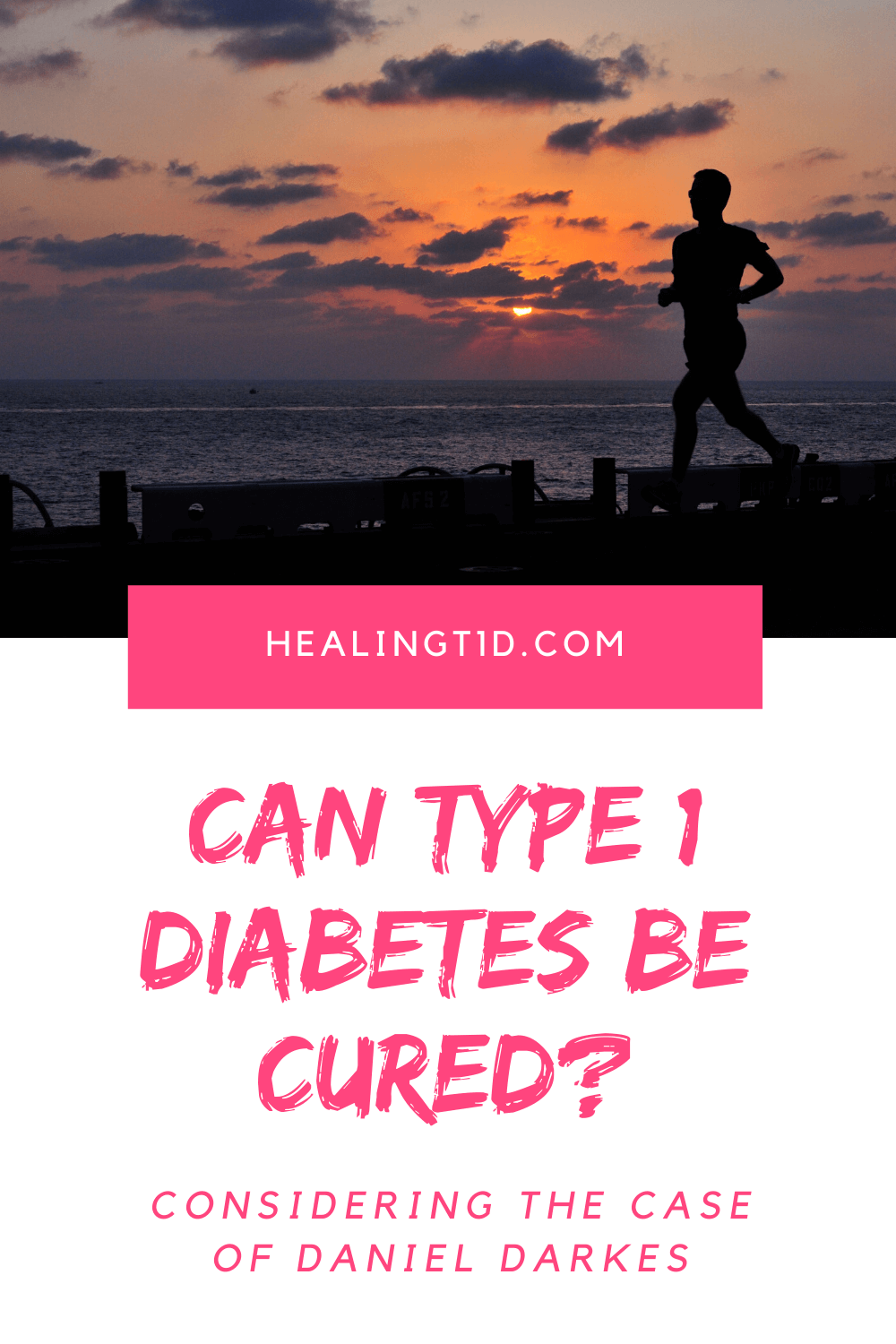
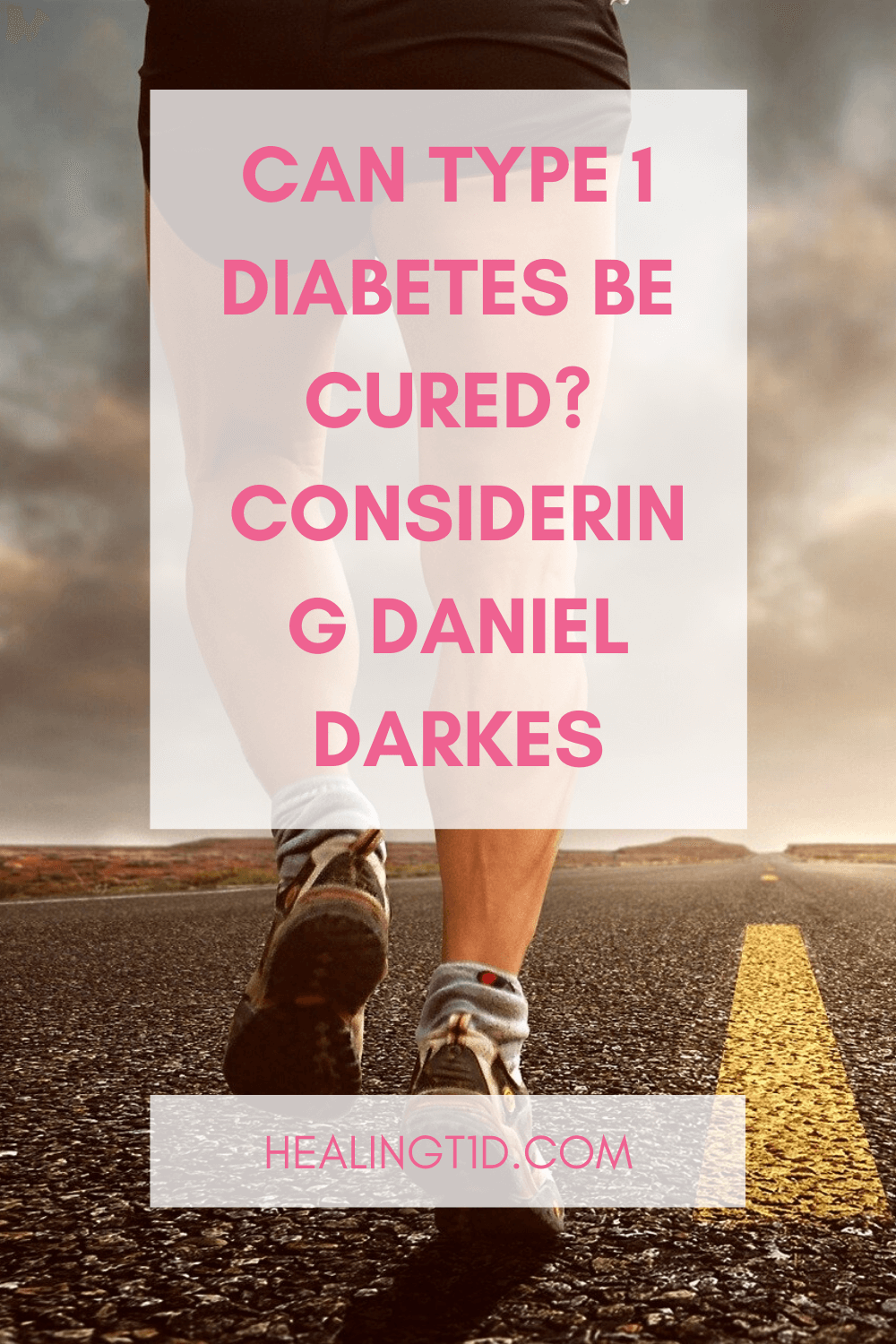

GET HEALINGT1D’S FUTURE ARTICLES IN YOUR INBOX!
Get the latest musings and findings straight to your email inbox.
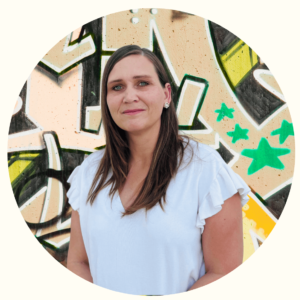
Natalie is a blogger with Type 1 Diabetes. Natalie's special gifts are questioning the status quo and being a rebel. She is using these gifts to question medical 'knowledge' and find a true cure for Type 1 Diabetes.
Recent Comments:
- Sandra on Nutrition Update
- latestModapks on Daniel Darkes
- Natalie Leader on Daniel Darkes
- Senna on Daniel Darkes
- Sandra on High Blood Pressure


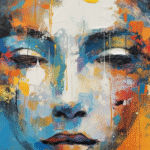

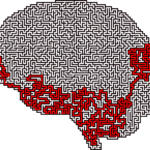
19 responses to “Daniel Darkes”
I am Diabetic Type 1 so is my brother and his second child! I have stoped smoking and eating meat of any kind! Basically become full Vegan! The fasting part makes sense to me as I am sure the body/Organ’s would love to have a break from having to work continually! The big pharmaceutical company’s would never tell you about a cure as they make a killing from keeping us sick literally! People started to hack insulin pumps so they could automatically keep the blood sugar perfect like our pancreas does! But when the pharmaceutical company’s found out they recalled all of the insulin pumps… I guess I will go for longer walks do more fasting and wake up earlier to get the most out of the sun! I If people eat all day they are still going to get tired and need to sleep so that tells me that the sun is what we need and that is giving us energy! So I guess I will rise with the sun and also settle down with it! When I was diagnosed with Type 1 I was told if you do not eat that your body will burn fat and that will cause keytones and the keytones will kill me! But if I keep a good eye on my blood sugar levels then I think I can find the right amount of fasting without my keytones going up! I will have to test all of this and if I cure myself I will share how it has been done with everyone with a step by step process! Thanks for the information!
Hi Neil, thanks for such an insightful comment! I think you raise some really interesting points about fasting and ketones… There are some really interesting studies about fasting regenerating the pancreas. Of course, fasting for periods of time as a type 1 diabetic comes with risks and therefore would need to be properly supervised by medical practitioners. I am certainly interested in fasting as part of my healing journey but I do not think that, for me, it is the right time to do it yet. I think fasting becomes much more interesting once the conditions in the body have been made as optimal as possible to provide the right environment for the pancreas to work. To draw an analogy… If I see my body as equivalent to a car, I need to ensure that all the other parts of the engine are working before I try to jumpstart the engine!! Best wishes to you and your Type 1 family members!
Thank you so much for writing this post. I was diagnosed with type 1 diabetes eleven years ago now which followed an original diagnosis of type 2 diabetes two years prior. When they changed my diagnosis during my pregnancy with my first child they said my diabetes was always type 1, it was just slow to progress. Looking back this tells me that our medical doctors don’t have all the answers and they were attempting to explain something they were uncertain of. Being only 22 at the time I was given my type 1 diagnosis and pregnant I followed all of their dietary suggestions and took insulin as recommended. Having spent time reading and learning about the body and cases of miraculous healing I have started questioning the high carb diets suggested for diabetics. Why would they want us to eat more carbs when that means we have to take more insulin? Then the keto diet came along and now people are pushing me that way and I can see some benefits but I am still in the research phase as I am trying to take the best approach for my body.
I first heard about Daniel Drake’s three years ago and have been fascinated but after a period of silence regarding his cured diabetes I forgot about him until recently, and that is what led me to your post.
Though I do feel like diet and proper exercise are very important for maintaining blood sugar levels I believe there has to be more to his story. From my own experience, I can monitor my blood sugar levels and take my insulin and still have high blood sugars if I haven’t gotten enough sleep or am very stressed out. Nine years ago I went through ketoacidosis, which was triggered by the stress of having a young child, starting a new job and being exhausted all the time. I was taking insulin but it wasn’t enough and in just a few weeks I was in the hospital. Stress and proper rest are huge components of our health and maintaining proper sugars and possibly finding a cure for ourselves.
Another thing I believe is very important is belief. We have to believe we can be cured; that our bodies can heal themselves. This is hard to do as it flies in the face of what we have been told about our diabetes for as long as diabetes has been a recognized condition. It goes against all of the medical advice we are given. I believe if we truly believe in our bodies miraculous ability to heal that allows it to start the work it knows it can do.
Hi Kristen,
Thank you so much for reaching out… It’s so great to hear from you!
I’m sorry to hear that you’re in the T1D tribe too… It must have been tough juggling the early years of that with a pregnancy! I was 32 years into my T1D journey by the time I had my daughter and it still felt like an enormous challenge!! Congratulations on doing it!
Yes, I agree with you that doctors can be limited in their knowledge, just like the rest of us are! It took me a good twenty years of diabetes experience before the penny dropped for me that they don’t hold all the answers (although sometimes I really, really wish they did – particularly when my blood sugars aren’t playing fair!!). As i discussed in my first blog post ‘What is Type 1 Diabetes?’, there are limitations to the model of diabetes that is currently being used (i.e. the beta-cell burnout hypothesis) and research is now arriving that actually contradicts that theory.
When you spoke about your T1D progressing slowly and the mix-up between Type 1 and Type 2, it made me wonder about whether you might actually be LADA (Latent Autoimmune Diabetes in Adults)? I don’t know much about it but, from what I’ve understood, it’s a slower progressing form of Type 1 Diabetes that happens in adulthood. It might be worth checking out!
I also ventured into the world of low-carbohydrate/keto eating for a while and found it very helpful. I found Dr Bernstein’s book ‘Dr Bernstein’s Diabetes Solution: A Complete Guide To Achieving Normal Blood Sugars’ an absolute bible on that. If you do read the book and implement the guidelines, there’s then a Facebook group called ’TYPEONEGRIT’ you ca join who are a wealth of knowledge for that lifestyle approach. Might be worth a look!
Regarding belief, I agree 100% with you that belief is definitely important in healing Type 1 Diabetes! We only need to think about the placebo effect, where just believing you are receiving effective medication can help with your symptoms, to know that belief is powerful! I outlined in my post ’The Neuroscience of Diabetes’ how the mind and body are inherently linked and how emotion is a big part of the system. Bruce Lipton’s work in general, and specifically his book ‘Biology of Belief’ also really underlines this for me. I hope to write a post on that at some point too!
It would be lovely to hear how you are progressing on your path to healing and I hope we cross paths again soon!
Natalie
Kristen and Natalie, I am a T1D veteran of 30 years. For the past year I have been focusing on my own gut health after being lead to a functional health class. The class covered all of the topics that you both have mentioned: stress, immune preferences, viral and bacterial overgrowths, parasites, hormones and much more. At the time of taking the class I had several food sensitivities that caused the most random insulin management issues.
I had been working on trying to resolve the food issues through diet alone for two years before finding the class. My doctors had no idea how to help me. There were no patterns for glucose activities. My body was creating different glucose patterns even when I ate the same meal. Food alone did not help me. However the approach I learned in the class did the job.
As a T1D I no longer experience food sensitivities or the insulin resistance issues that would appear at times. Our emotions and our health history are the key to unraveling what we are experiencing as T1’s.
Thank you for this article. I woke up this morning January 1, 2021 to see a post about Daniel Darkes and his healing of T1D. A simple google search is what lead me to this article. Thank you for eloquently saying what I believe and have experienced not yet to the degree of healing T1D yet.
Hi Liz,
I am really fascinated to hear about your experience of your functional health class. Can you say a bit more about it? I became interested in the issues of gut disorders in diabetes management after reading ‘Dr Bernstein’s Diabetes Solution’. He speaks about issues with blood sugar control as a result of gastroparesis. Then, my daughter started having issues with her blood sugars at 18 months of age and these were resolved by supporting her gut health (under the guidance of a paediatrician!). The gut-brain axis of course then shows us how the emotional network in our bodies links directly to our gut and therefore how we cannot focus on one without the other. I believe that our bodies are a beautifully designed system that needs to be understood (and respected!) in their entirety!
I wish you a happy and prosperous 2021. May healing be your gift this year.
Natalie
Hello, where did you find the info on what supplements he uses?
Hi Srnka!
If I remember correctly, it was actually in the diabetes.co.uk forum where he offered to answer fellow diabetics’ questions. Here’s the link for that… https://www.diabetes.co.uk/forum/threads/dan-darkes-type-1-diabetes-reversal.153777/. If it’s not in there, then it must have been in one of the two videos I watched that were posted on diabetes.co.uk. I think if you search Google, they’re likely to come up.
All the best on your healing journey!
Natalie
My wife diabetes symptom was diabetic neuropathy. We didn’t know she was diabetic until we went to my doctor complaining about constant foot pain. After a multitude of tests for everything from rheumatoid arthritis to muscular dystrophy, an emergency room physician checked her blood sugar.After reviewing a letter written by my doctor, where I read he had prescribed Celebrex for her due to pain of Arthritis which had really messed her neck, back and knees, I found that one of the side effects of Celebrex is Diabetes, my wife was able to effectively cure herbal condition It is too much for a patient to endure such as they slowly begin to pass away if the right medication is not taken organic herbal treatment.Having a positive mind is a powerful tool .My prayers goes out to diabetes patients and their care givers.
Hi Angin,
Thank you so much for taking the time to write about your wife and her experiences with diabetes. I am not sure what type of diabetes she may have been suffering from. I assume, although I do not know much about it, that developing diabetes from a prescribed medication is not particularly common. I have never heard of type 1 diabetes developing in this way. However, I am glad to hear that your wife was able to heal her diabetes and that you are such a strong believer in the power of prayers and a positive attitude.
All the best to you and your family,
Natalie
Hi Natalie! My name is Jeromy Zolinski and i have had Type One Diabetes since i was 5 years old and i am now 30. This is refreshing seeing someone with the passion of helping other and discussing topics like this related to Diabetes. I have a real passion for it too and I want to help others and get into sharing my knowledge as well. I would love to hear more about your story and how you got into blogging. Any suggestions would be appreciated! I find this story fascinating and gives everyone in the T1D tribe hope as well. I have been reading into this story and just am in awe. This is truly amazing. My only concerns are is the time that passed since we last heard from him. Is he still not taking insulin? I noticed many people saying he was misdiagnosed originally? Either way this is amazing and i, along with other members of the T1D tribe have hope. Keep up the great work!!
Hi Jeromy, thank you so much for your wonderful comments about my blog! It is really great to hear that you are also inspired to do something similar. If you want to get into blogging, I would recommend that you just start! There is so much to learn but, if you wait until you know what you’re doing, you’ll never start!
I also wonder about what has happened to Daniel Darkes since we last heard from him in the public arena. I would like to think that he is just getting on with his life in good health! I know that not all people received the news of his healing positively so I wonder whether that might have dissuaded him from being in the spotlight…? I think it is very easy to say someone is misdiagnosed when they don’t fit with current medical understanding (that believes Type 1 Diabetes is incurable) but I have, as yet, not seen anything to prove that hypothesis.
Hi Everyone
I have just been diagnosed with type 1 diabetes 3 months ago. I am 60 year old female weigh 43kg and 5ft1. I am fairly fit un exremely healthy never had colds or flu. I have been probably over the top about everything i put in my body since i was around 30 years old. I have been vegan a few years then vegetarian then added fish to my diet around 45 years old. I have been an aerobic instructor then marathons ultra marathons un 2 years ago Half Ironman. Never had gels or energy drinks ever, only water. Didnt have sugar in any form at all, only in fruit (the whole fruit) no salt. Once a week i may have had a piece of cake. At 59 i exercised about 3 to 4 hours a day 5 to 7days a week. An elite athlete then a load of stress came from all sides un i ended up in hospital in high care for 5 days. Now its extremely difficult to exercise like i used to.Sometimes glucose levels go up or down so i never know where i am. Eg before 12km run 9.0 after 14.2. Before 12km run 12.2 after 6.0 i never eat before only drink water. I tried a 3 day fast levels went down every few hours but overnight shot up from 6.2 to 11.5 on 1st day. 2nd day also went up but only 5.7 to 6.8. I am only exercising for just over an hour about 4 or 5 times a week now but feel sluggish not like a rabbit like i used to feel. And my times went from 4.15 minutes per km to 5.15 to 6 mpk on a good day. I am hoping someone out there can help me with this situation, that by all accounts should never have happened. I had loads of vitamin c and D from being in sun so long everyday. I eat raw spinach, kale, beetroot etc everyday The only explanation is stress. 3 months of this is enough. My opinion is diabetes steals your freedom😢i heard it could be connected to deep sleep as well. I noticed in Jan Feb last year i was getting many hours of deep sleep. Now my Gps shows less than an hour every night now. If there are any studies out there i am willing to try anything. If anyone can reverse this disease i am an excellent candidate. I have fasted for 7 days before diabetes, but lose too much weight. I live in South Africa if someone wants a good case study or if Daniel Darkes really is cured it would give us all some hope😁any tips welcome. Stay safe. Thx Janette
Hi Janette!
Thank you so much for taking the time to comment on my blog and share your diabetes story. I am sorry to hear that you’ve joined us all in the diabetes population… It sounds like you went through a pretty stressful period in your life that resulted in T1D. I’m sorry that happened to you. I believe that the oscillations of blood sugars, and the resulting reduced quality of sleep, are actually pretty normal for T1D – it’s just that the majority of doctors don’t seem to acknowledge this! I am wondering if, since you seem to have such a great level of self-discipline and are so committed to your health generally, you might benefit from reading Dr Bernstein’s book ‘The Diabetes Solution’. It is a pretty hard core way to treat T1D and is not for the faint of heart but the results, for those who can maintain it, are truly astounding. It would most certainly improve your quality of life from the blood sugar swings that you’re currently facing. I hope that some of the other readers of the blog might be able to advise you about contending with the early days of T1D… I am afraid that I was 18 months old when I was diagnosed so I don’t remember that stage! I wish you well with your health and your forthcoming journey to healing.
Hi Natalie, my name’s Jeanette. I’ve been battling type 1 diabetes since I was 15, it came on after a really traumatic time dealing with my parents’ divorce, and a romantic relationship that stank to high heaven of manipulation. I’ve had lots of time scouring the web for accounts of people healing from type 1 diabetes. The very best firsthand accounts are from people who have been healed through praying in agreement with a person who knows their authority in Jesus to heal.
There’s about three firsthand accounts of this on youtube, and several ministries which have shared their notes on the subject. There is always a mindset of low self worth that lingers under the situation of Type 1D, it effects how the protiens in the hypothalamus are shaped, which communicate to the rest of the endocrine system, how to handle the rest of the body. There’s an interplay between that part of the brain and the rest of the body. (the hypothalamus is where much of the emotional memory of the body is stored and a good deal of the regulatory on-off switches for hormones are). Remember also , for those who are diagnosed very early in their lives, there is a huge dynamic of how family relationships effect the emotional (and thus hormonal) lives of their children. What the parents experience, the children do too.
I discovered first a series of testimonies from a person who was healed after 30 years of diabetes when he used an electronic alternative-therapy device over a period of ten months (he is an elderly man) with the guidance of the machine’s developer – he had to stay at home for upwards of 4 hours a day holding copper hand-rods. What’s the red thread? He began to believe it was possible, hetook care of his body, and over a period of gradual reductions in insulin dosages, was quite well. This however is a wasted persuit in light of the other testimonies I found!
A young msan in australia had a chat with a newly-diagnosed type 1 diabetic in a parking lot outside their college. The one student was out to speak with and pray for people to meet Jesus, and this includes praying for their healing. The next week the young man who had been prayed for came back, he had been taken off insulin by his doctor because the blood sugars had started to self-regulate again!
What is the red thread?
Nothing is impossible, but it can seem out of reach when ‘everybody says’ becomes the rule of thumb. It does not pay to ignore or leave untreated the medical needs of the body, but it is worth every moment in meditation on the bible and persuing a relationship with your creator. The designer knows how the system works, doctors are only able to tweak it! Prayer is a healing time.
I’ll namedrop for you – listen to the lectures of Dr Caroline Leaf. 😀
Hi Jeanette!
Thank you so much for taking the time out to provide such an insightful comment! Like you, I truly believe that faith and spiritual practices are key in healing. It is therefore fascinating to hear that hands-on praying/healing can be so effective. However, I do keep wondering why Type 1 Diabetes seems to be a condition that is not so easily touched by these practices. I believe that it is something specific about T1D that makes it so and I would love to hear if you (or anyone else!) may have ideas on why this may be the case.
I am also really interested in the mind-body connection and the impact of hormones on the system. I explored that somewhat in my blog post on Candace Pert. What I find particularly interesting is that there are actually more pathways (I think it’s 70%) running from the gut to the brain than from the brain to the gut. That therefore suggests to me that a focus on the gut and its impact on the various neural and hormonal pathways (HPA axis, gut-brain axis and so on).
Definitely a key factor in healing from T1D is the conditioning that we have all received during our lifetimes about the fact that T1D is not curable. That sets up a belief system in the body that ensures that healing does not take place. The scientific method always works on probabilities, with a particular outcome never being proven but a statistical analysis applied to it that suggests how likely it is to be true. But correlation does not equal causation. So, just because doctors have not witnessed healing from T1D (well, they have now with Daniel Darkes!), it does not mean it is not possible. They have made an erroneous assumption. So I must, as a diabetic, first convert my non-belief of being healed into belief (which I’ve done). Then, I think improving health, removing toxins, reducing inflammation, and so on create the right climate in the body for healing to take place. Spirituality is one of the components that bring that healing in.
Thank you for recommending Dr Caroline Leaf! You are the third person in just over a week to mention her. I have ordered her book and look forward to reading it!
All the best on your healing journey! Please drop in and let me know how you’re getting on!
Natalie
This post gave me a lot of hope! I was wondering if his C-peptide blood levels were checked? I wonder if he was still producing some of his own insulin or if it had completely stopped? Do you believe that we can heal Type 1 if we have completely stopped producing insulin? My C-peptide test is 0 🙁
Hi Senna,
Yes, I do! C-peptide is created at the same time that insulin is produced so a c-peptide score of zero just shows that, currently, you’re not making any insulin. That doesn’t give you any indication of whether or not you can. Even in a pancreas like yours (and mine!), we have tiny cells sitting around the edge of the pancreas that can grow into adult (hopefully functionning!!) beta cells. Equally, I read a study that showed that researchers removed ‘dead’ beta cells from a diabetic pancreas, put them into a petri dish (i.e. into a different environment) and they started producing insulin. So, if we can change the environment our cells live in – our physical health, our mental health, our external environment and so on – I don’t see why our cells can’t produce insulin too. At the moment, our bodily conditions are just telling them not to produce it. They need reprogramming! At least, that’s what I have come to believe.
I’m still in awe reading about Daniel’s story. It’s incredible to see the power of faith and God’s intervention in healing. I’m sending lots of prayers and positive vibes for your continued health and well-being, Daniel. Thank you for sharing your journey with us.